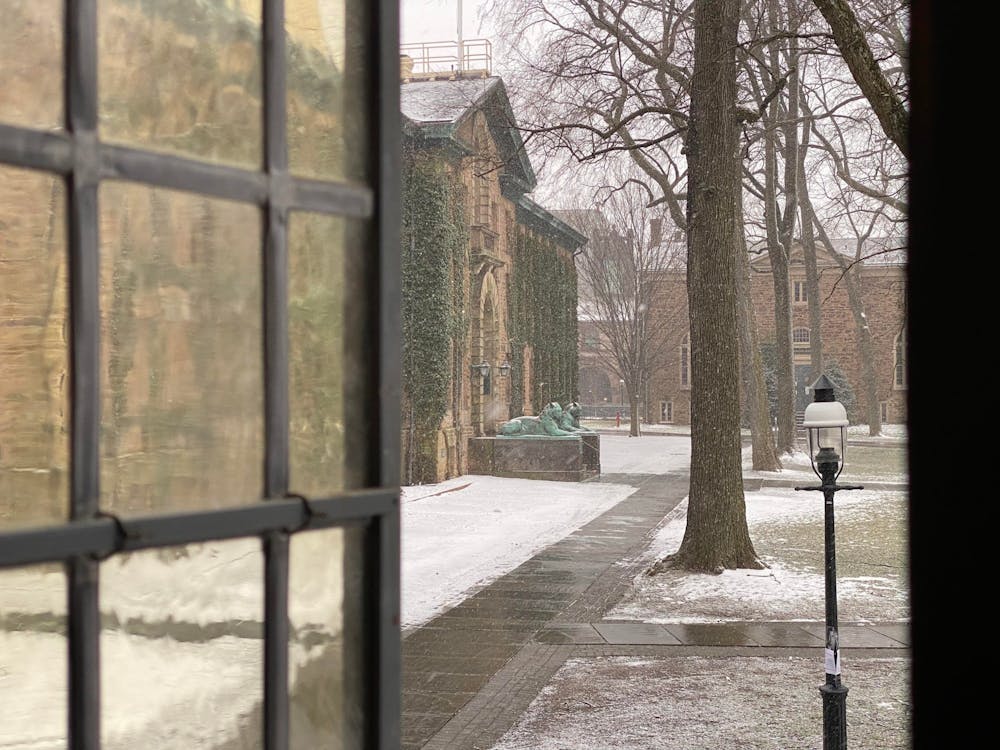This March 14th, I’m turning 22 years old, and just like these very words as I first write them down are filling the very first page of a brand new, blank notebook, I feel like I’m entering this year with the world wide open before me.
For all the elation and all the sorrows my life has brought me, I’ve spent the past couple weeks wrestling with an odd sense of satisfaction — neither elated nor sorrowful, simply satisfied. So often in my life I’ve been chasing joy or processing grief that I can recall very few moments in which I’m just content with life, with simply being. And I think that’s why I no longer expect to cry on my birthday this year.
I’ve cried on my birthday in previous years for a variety of reasons. I’ve felt lonely. A gift has revealed that someone I try to love doesn’t know me as much as I hope they would or as they once did. I’ve felt overwhelmed by all that had been changing, was changing, and soon would be changing in my life that year. Or — maybe more than any other reason — I faced the mismatch, at times heart-wrenchingly difficult, between the realities of life and my expectations.
These reasons for crying could all surface at any point of the year, but I associate them so closely to my birthday because we’ve made such unavoidable, overbearing milestones out of this personal celebration. We’ve turned them into legal milestones, like driving at 16, voting at 18, or legally drinking at 21. We praise people for doing certain great things by a certain early age, like 30. And so we’re left with all these expectations of what life should and should not look like for every year we reach and pass.
But “milestone” is such an ugly word for describing these moments of celebration in our lives. It’s a compound word, and each half is its own brutish way of characterizing our lives.
The first half, “mile,” enforces a linearity of time that is so prevalent in how the English language handles the passing and measuring of time. It aids the notion that our lives are sequential and that we must therefore do certain things now so we can arrive at our futures. It aids the notion that there exists a “normal” life to have and to follow.
But life is rarely linear. We rarely experience it in this manner — often only in narrating life already passed. And all the years I spent longing, desperately, for a “normal” life — as I lived through losing my dad, through coming out, through these last two years — have finally left me refusing the idea of normal. This is life — at least, mine. And it’s not linear or logical or easy to understand, but it is. It simply is. I no longer wish to measure it — against itself or some “normal.”
The second half of the word, “stone,” adds an unsettling heft to life. Stone is such a permanent, hardly moveable material. These are natural characteristics to stone but not to our lives. These qualities are so terribly mismatched to the ephemerality and uncertainty of life. We grow. We learn. We change. And the world around us does so as well. Any effort to define ourselves, our lives, as rigidly as stone is bound to slip away from us, leaving us confused.

Yet, I’ve found myself and others around me still trying. There’s a desire to achieve, to succeed, to reach the top. But we’re only in our early twenties, so to expect these high points to be permanent like stone can only leave us deflated, feeling empty as we are forced to move on with our lives — to define ourselves anew. However, I’ve also found myself making an effort to stop trying to define or categorize or situate my present self and this present moment in my life as if it were the latest milestone to be laid by surveyors.
This effort to simply be, exist, live, goes hand-in-hand with my odd sense of satisfaction I mentioned at the start of this essay. It’s not in any way an effort to be emotionless or without care; I’m an incredibly emotional person. Rather, I’ve reminded myself to more fully relish in life as it is.
In a recent conversation with my friend (and Editor-in-Chief Emerita) Emma Treadway ’22, we turned to the Stoics — her favorite Hellenistic philosophers and senior thesis subject. In trying to familiarize myself more with what the Stoics had to say while the two of us continued texting, I stumbled across the following words from Marcus Aurelius:
“When you arise in the morning, think of what a precious privilege it is to be alive — to breathe, to think, to enjoy, to love.”

Many centuries before I was born and felt this recent sense of satisfaction, Marcus Aurelius described it. I’m turning 22 years old, and despite the good or the bad, I’ve found myself waking up each morning quite satisfied with the life and the world opening up before me. It’s such a privilege indeed to be able to say and write that.
I guess I’ll take it as my 22nd birthday gift — and what a precious gift it is.
José Pablo Fernández García is a junior from Ohio and Head Prospect Editor at the ‘Prince.’ He can be reached at jpgarcia@princeton.edu.
Self essays at The Prospect give our writers and guest contributors the opportunity to share their perspectives. This essay reflects the views and lived experiences of the author. If you would like to submit a Self essay, contact us at prospect@dailyprincetonian.com.








